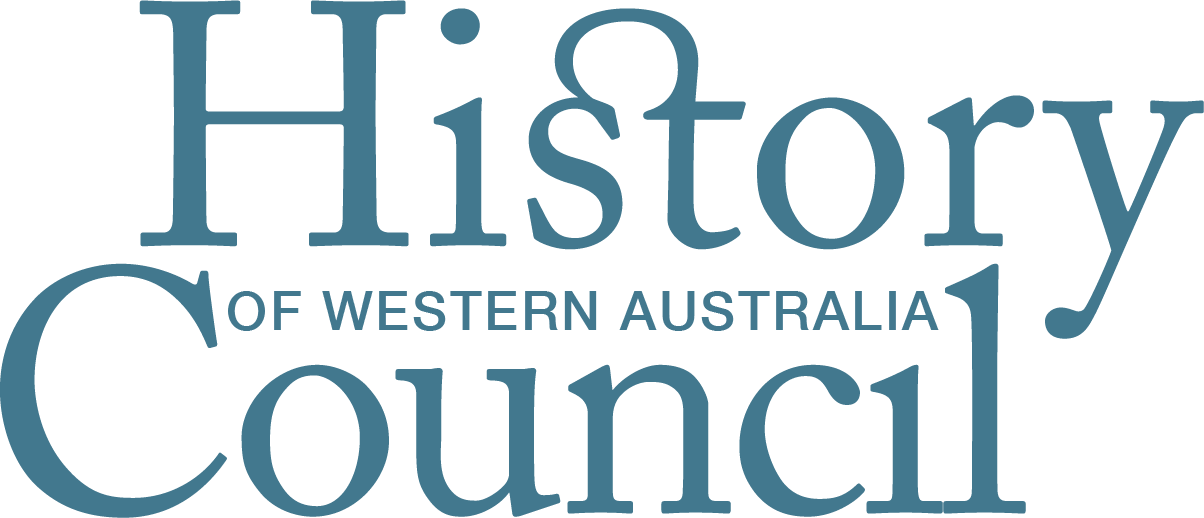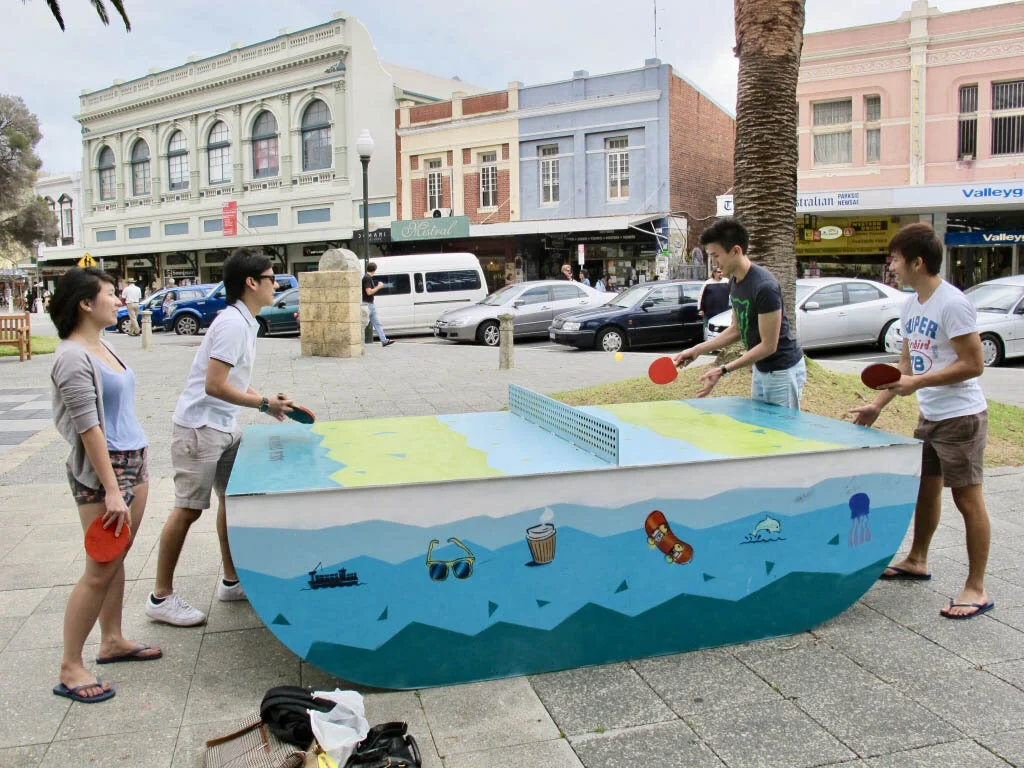Place names and layers of history
It is unfortunate that the phrase ‘what’s in a name’ is so casually used when talking about any issue involving a place name, especially as an answer is rarely attempted. Such an issue is being considered by Fremantle City Council in relation to its Kings Square development. The phrase comes from a line spoken by Juliet in Romeo and Juliet, “O, be some other name! What’s in a name? That which we call a rose by any other word would smell as sweet.” Despite Juliet’s lovelorn plea, ‘what’s in a name’ is important, especially when re-phrased as ‘what’s in a place name’. What is in a place name are the histories of a place – a place name is a historical record, and as such it invites questioning and story-telling and future-making. It’s much more than just a label to distinguish one place from other places, such as a toponymist (or Juliet) might say.
People playing ping pong in Kings Square, 2011 | Marlene Oostryck (Wiki Takes Fremantle participant) - Uploaded from Wiki Takes Fremantle, CC BY 3.0, https://commons.wikimedia.org/w/index.php?curid=17313403
A dual name, as a place name, goes further in that it makes clear that the one place, or site, has multiple histories and physically consists of the evidence of many historical layers. These is further enhanced when the two names are in different languages, placed side-by-side. It encourages, at the very least, every day ‘history making’ in people’s minds. A dual place name reflects the historical complexity of the place and keeps that complexity in the foreground. It provokes people who use the place to constantly think of its historical trajectories, past and future, and deters them from lapsing into just using a place name as a meaningless label.
It was arising from such a discussion that a submission was made to Fremantle City Council recommending the City consider a dual naming of Kings Square with a Whadjuk Noongar name that respectfully acknowledges the long Indigenous history of Walyalup Fremantle and which is considered appropriate by traditional owners. Fremantle was at the heart of the nineteenth-century frontier experience of the Swan River Colony. That frontier is a critical matter in the state’s historical record and a powerful influence on our cultural heritage. Dual naming Kings Square would both acknowledge and remind us of that complex story.
Bruce Baskerville

